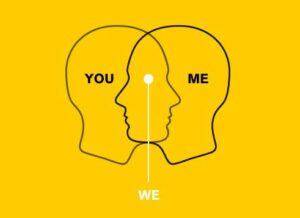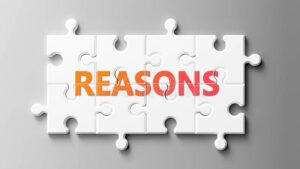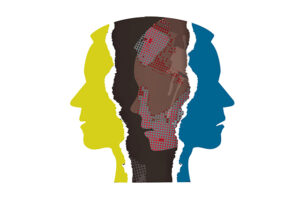The idea of reciprocity in relationships is an important one. One that people often forget about when they are in the heat of a relationship. The concept is simple: what goes around, comes around! Giving and receiving in relationships can be seen as a two-way street. When you give to your significant other, it will make it easier for them to give to you later on. It’s true: if you want something done right, you’ve got to do it yourself!
Contents
Definition of Reciprocity

Reciprocity is the idea that your behavior towards another person will influence their behavior towards you. This concept exists in relationships because people tend to treat others as they are treated by them. You know how karma works, right? What goes around comes around!
Three Types of Reciprocity: There are three types of reciprocity that exist in relationships: positive, negative, and passive.
- Positive Reciprocity: The most common type of reciprocation is when you give something to your partner and they do the same back for you later on. This is a way for people to show each other that they care. They will do something kind for you, and then you should do the same thing back.
- Negative Reciprocity: When someone does something bad to their partner, the partner often does something bad back. If someone cheats on their significant other, they’re likely to do the same thing. They might also say bad things about them outside of their relationship.
- Passive-Reciprocity: In this type of situation, two people who do not know each other will ask a third person to hurt the other person. They just want revenge.
Stages Of Reciprocity In Relationships
There are three stages of reciprocity in relationships: the first, second, and third stages.
- Stage One: This is when your partner does something nice for you. You feel so grateful that they did this kind act! If a person’s behavior doesn’t change, then they should stop doing it. It won’t last for long. If someone buys you flowers one day but doesn’t do anything else, then what was the point? That person would have been better off if they had just bought themselves some flowers for their loved one instead.
- Stage Two: This is when your partner does something nice for you, and then asks if they can do this same thing later on. This means that the person doing it wants to do nice things for their significant other. It makes them feel good when they get something back in return.
- Stage Three: The last stage of reciprocity in relationships is when people are taking turns being kind towards each other. When someone starts out being mean to another person but then changes into being nice, then there is no more anger in the relationship. It just takes some patience sometimes and some flowers.
Reasons Why You Should Give Back

There are many reasons why giving is so important in relationships. When you give to your partner, they will feel loved and appreciated. This makes them more likely to want to do things for you in return!
Here are some other reasons why giving is so important:
- It strengthens the relationship bond: When you give to your partner, it strengthens the bond between you. This makes it easier for both of you to communicate and understand each other.
- It shows that you care: When you show that you care about your partner, they will feel loved and appreciated.
- It can improve communication: Giving back can help improve relationships because it helps people express their feelings.
- This helps with conflict resolution: The way to solve problems is to give. When people do this, they create a better relationship.
- It builds trust: Trust is essential in any relationship and one way to build trust is by giving back to your partner.
When You Shouldn’t Give Back

There are times when you should not give back to your significant other, and here’s why:
- When you’ve done something wrong: If you have not been being a good partner lately, they might not forgive you if you start doing things back. You should make an effort first before expecting anything in return!
- It can hurt the relationship: When people do too much giving and not enough receiving, they might feel like their partner doesn’t appreciate them. Some people do not care as much about their relationship. It might seem unfair that one person keeps trying and the other gets all of these benefits from just doing that.
It can be difficult for people with low self-esteem: Some people do not feel good enough to deserve the things that their significant other gives them. If you are this type of person, you might want your partner to show love but then take it away when they give too much attention or gifts.
When You Should Give Back
There are times when giving back is appropriate in relationships! Here are some occasions why it’s important to give back even after someone has given something first:
- To make up for bad behavior: When a relationship goes through hard times, one way to bond again is by doing kind things together. This shows both parties that there was nothing seriously wrong and everything is working out fine now! It won’t last long if it’s not a sincere gesture.
- To show appreciation: It is really appreciated when you give back to someone who does something nice for you! You can do it so they know how much their actions mean to you and that they aren’t going unnoticed. This will make them happy too because people like feeling special, don’t they? 🙂
- To show interest in the relationship: When your significant other has been trying hard but you don’t respond, this may make them feel bad. It is a simple thing to do, but it can make people feel better. It makes them feel that they are not left out of everything.
Negative Impact Of Reciprocity In Relationships
When reciprocity is not balanced in a relationship, it can have negative consequences. For example:
- One person might feel taken advantage of: If one person always gives and the other never does anything, it can make the giver feel used. People may think that their spouse doesn’t love them as much as they thought.
- It can lead to resentment: When someone feels like they are doing all the work in a relationship, they may start to resent their partner. This could ruin the relationship entirely if it’s not fixed soon!
- It can be difficult to maintain: It takes a lot of work to keep up with reciprocity in relationships. If one person stops giving, things will go back to the way they were before. It can be hard to constantly help each other and keep track of everything. It is best not to rely on reciprocity too much!
Helping Someone To Learn Reciprocity In Relationships

If you are in a relationship and would like to help your partner learn how to give back, here are some tips:
- Talk about what giving means to both of you: This is a good way to start off the conversation. Discussing what giving means can help clear up any misunderstandings that might happen down the road.
- Start small: Giving back doesn’t always have to be a huge gesture! Sometimes doing something small for your partner can mean a lot.
- Make sure it’s genuine: If you’re only doing things for your partner because you feel obligated, they will be able to tell. Make sure that when you’re giving back, it’s from the heart!
- Be patient: It may take time for your partner to get used to giving back. Don’t push them too hard or they will feel like you’re taking advantage of their kindness!
Conclusion
There is a concept in psychology called “reciprocity”. It means that people feel obligated to do something for someone who has done something nice or pleasant for them. It’s a powerful social force and it can be used in relationships, specifically romantic ones. When you first start dating someone new, they will generally try to make sure you are having a good time on dates. They may open doors for you, pay your share of the bill at dinner, etc. When someone does something nice for you, it makes them want to do something nice back. It makes you like them more. If both people in a relationship keep doing this, then their bond gets stronger and they have a better relationship.
On the other hand, when reciprocity is not balanced in a relationship, it can have negative consequences. For example, people might feel taken advantage of if they always give and the other person never does anything. Or they might feel resentful if someone feels like they are doing all the work.
For more information, please contact MantraCare. Relationships are an essential part of human life. It is the connection between people, and it helps us to form social bonds, understand and empathize with others. If you have any queries regarding Online Relationship Counseling experienced therapists at MantraCare can help: Book a trial therapy session


